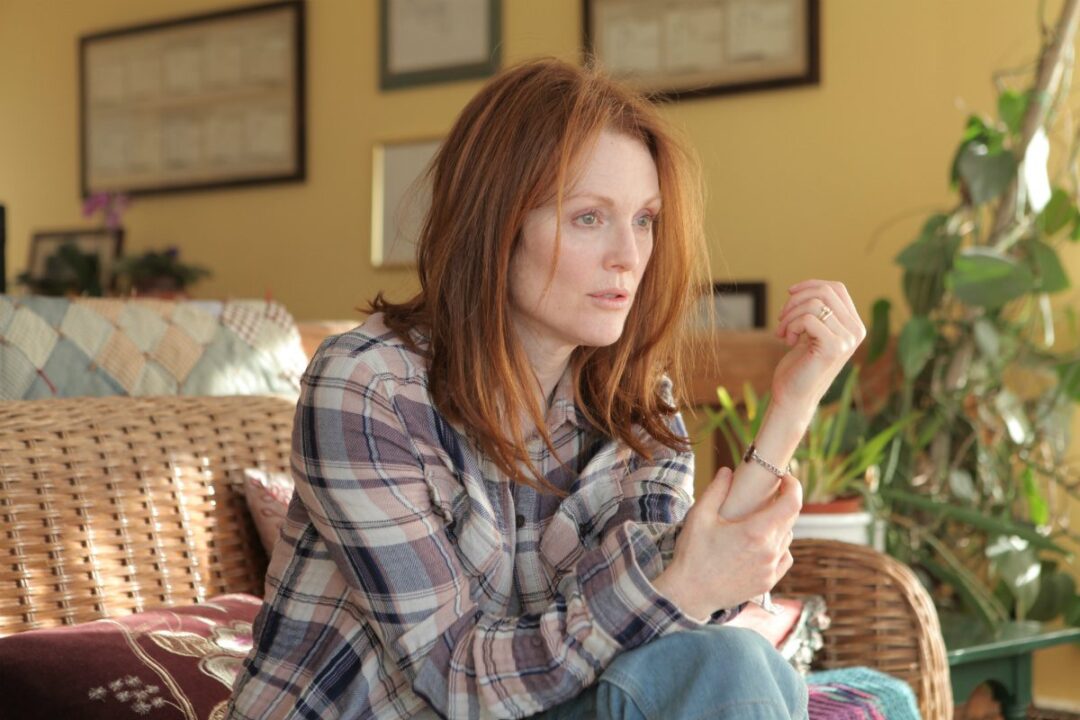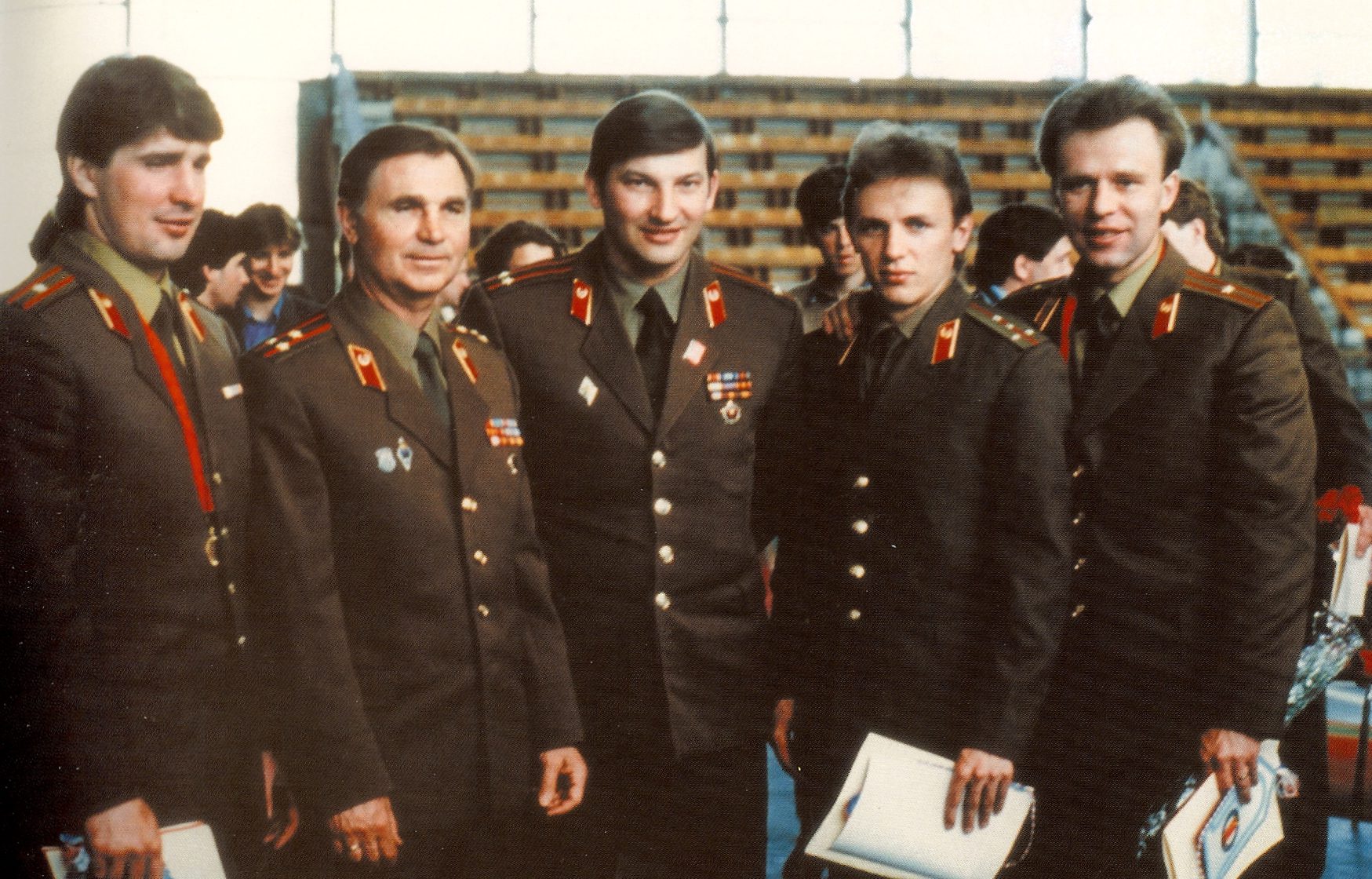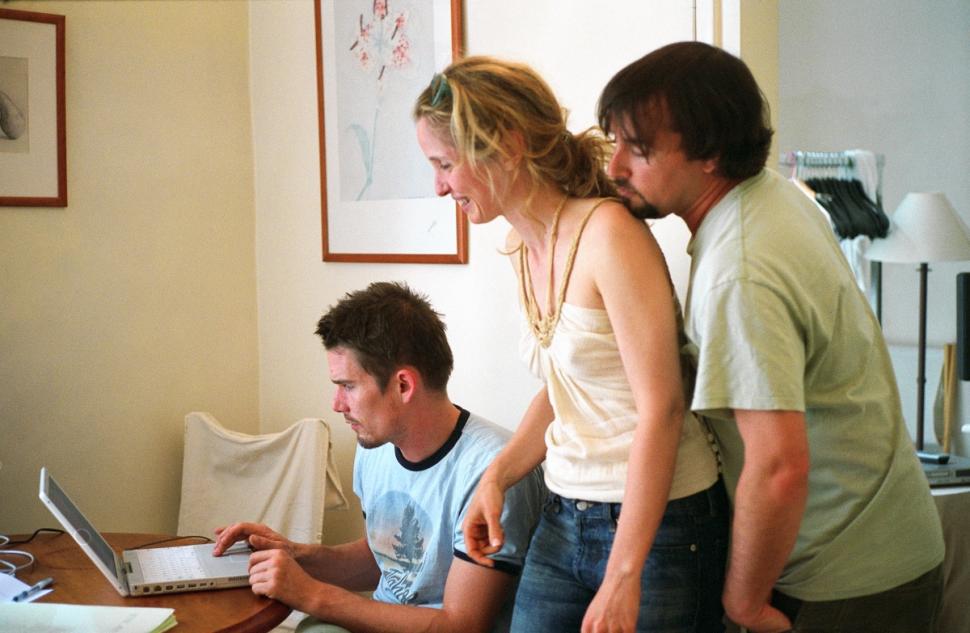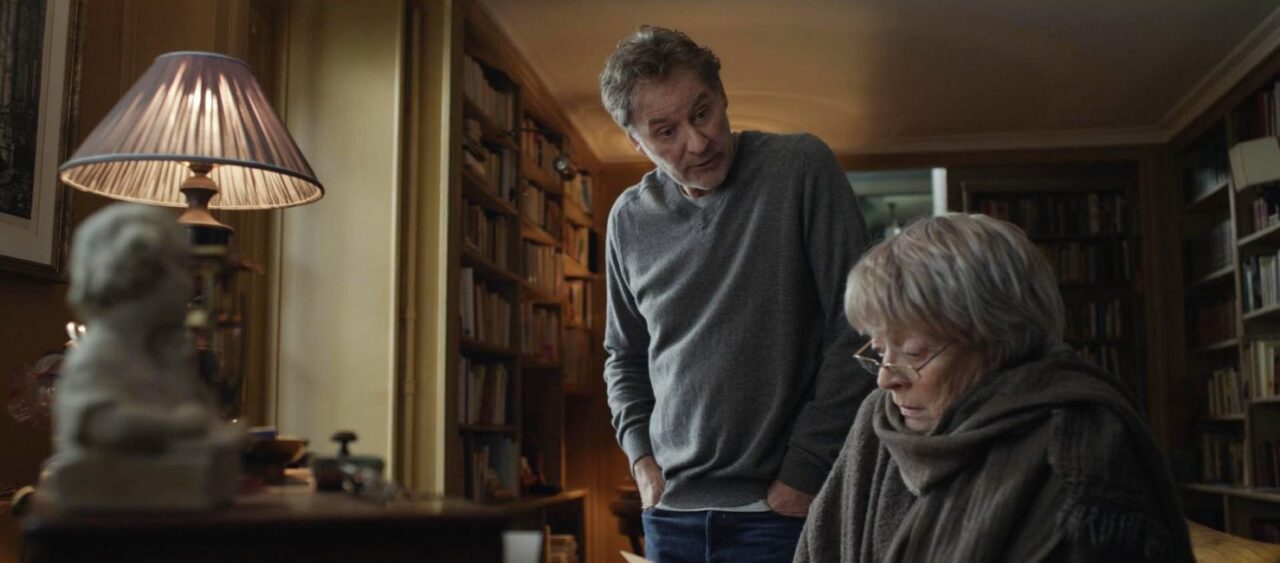Review: 'White Shadow', 'Wrenched', 'Two Days, One Night (Deux Jours, Une Nuit)'
I was able to catch the last 2 days of the 10-day festival but still managed to see a great cross-section of festival movies. While Denver does not attract as massive of a crowd of industry folk, every film I saw had a full house of patrons, and there is interest here akin to the higher-profile festivals. Here are my thoughts on each one, as well as a bit on when their planned release is.
White Shadow (Germany)
Director: Noaz Deshe
Writers: Noaz Deshe, James Masson
Stars: Hamisi Bazili, Salum Abdallah, Riziki Ally
This is a festival thoroughbred, having already played at Venice and Sundance already, to name a few. A vérité style depiction of Alias, a young albino growing up in the outskirts of an unnamed city in Tanzania. The primary conflict is that as an albino, Alias is the prey of witch doctors, who cut up albinos and use them for outlandish potions and mysticism. His journey shows us all sorts of elements of a world that is completely foreign to us, but remains wholly individual and never tries to be the definitive “Africa story” that would be an easy route to take. Because of the film’s looser style, it requires extra attention from the viewer and doesn’t have a clear through line, but is compelling because of how otherworldly it feels. There isn’t a big takeaway or call to action, but the film’s expose cannot help but leave a mark. There are a few incredible sequences, including a betting scene and a sequence where the protagonists are digging through e-waste looking for salvageable electronics, but the collective whole still feels looser than it needs to be, and the stylistic elements of the film are not employed often enough to be the focus of the movie. White Shadow will most likely not be playing in US theaters anytime soon due to a depiction of animal cruelty that probably wasn’t fake (although is rather tame compared to any day at a US meat factory). However, as a festival film, it is intriguing and unlike anything else you will see, and for that alone it may be worth your time.
Wrenched (USA)
Director: MI Lincoln
Stars: Edward Abbey, Dave Foreman, Peg Millet
A small-scale environmental documentary with a big message, director ML Lincoln’s Wrenched is about the writer and radical conservationist Edward Abbey and how his message and legacy carried on after his death. Abbey is known for writing Desert Solitare and The Monkey Wrench Gang, both classic books for anyone who cares about wilderness and ecology, but also did some “night work” as he called it, involving tearing down billboards, destroying bulldozers, and other behavior all with the intention of stopping the destruction of the natural world. While neither are required reading, knowing the material will make the film that much more enjoyable, especially Monkey Wrench Gang, which turned out to be much less fiction than one would believe. The documentary has a great deal of archival footage which makes it easy to see the movement and get excited about what is going on, and the film chronicles from the 1970’s until present day but never feels like too broad of a scale to cover.
One of the key elements of Abbey’s work that made it so successful was that he made being an environmentalist fun and something that people should want to do instead of a chore or obligation. There is something truly special about the wilderness and its unfortunate that fewer people with each passing generation will have access to it, a message the film will not let you forget. There is no definitive villain shown here either: it is the mass corporations building dams and mines that permanently scar the natural world. It is hard not to see this movie and be moved to action, and Lincoln does a great job of inspiring young people today rather than seeing it as a lost cause. Edward Abbey had a spirit that continues to leave a legacy, and despite being labeled an “ecoterrorist,” his principles are about respecting the natural world and realizing how imperative it is for our long term survival, something often overlooked. Wrenched is not meant to be provocative, none of what has happened should be shocking, but is actually meant to be moving and entertaining, at which it succeeds. The film is still making the festival rounds so may not see distribution until next year, but if you are interested in learning more, check out the website and you may even be able to request a screening! http://wrenched-themovie.com/

Two Days One Night (Deux Jours, Une Nuit) (Belgium)
Director: Jean-Pierre Dardenne, Luc Dardenne
Writers: Jean-Pierre Dardenne, Luc Dardenne
Stars: Marion Cotillard, Fabrizio Rongione, Pili Groyne
Lastly Belguim’s official submission to the Academy Awards, Two Days One Night, which also screened at AFI Film Festival. The film centers around Sandra (Marion Cotillard), a married mother who is overworking to make ends meet, but has just been fired from her job. Her foreman has agreed she can get her job back if the majority of her co-workers vote yes to her return. But, there’s a catch: if she gets her job back, all of her 16 co-workers will lose their bonus. From there, the film is a depiction of Sandra’s journey of visiting all of her co-workers asking them to vote in her favor. What sounds simple enough turns out to be a fascinating display of the human spirit and the insidious affects money has on anyone who is working to make end’s meet. Every one of her co-workers has a different response to this Hobson’s choice that she presents them with, and the story builds extremely well throughout. What makes the film so effective is the style that is employed. Rather than favoring conventional coverage, with a mixture of close-ups and cuts between dialogue, every interaction Sandra has is an uninterrupted take, and the result is stunning. There is no flashy shot that draws attention to this effect – in fact, as a regular film viewer it would be easy to overlook this directing feat. There is no clear reason as to why this technique is used, but because it is so effective at drawing the viewer in, it doesn’t really matter. What matters is that when you strip the film down, it is about authenticity and human experience, and Cotillard brings that to the fullest. It is not an ostentatious showcase of acting range, so, unfortunately, she might be overlooked come awards season, but instead she is on point at displaying the emotional exhaustion of a person in her state. This is as relatable of a film as they come, and touches on experiences that everyone has had at some point. Without a doubt, this is one of the finest dramas of the year. Two Days One Night played at Cannes and Toronto earlier this year, and will get a limited release on December 24th.
Review: 'Punch-Drunk Love'
There’s a common feeling when you start watching a movie on Netflix. As the movie begins, you’re still adjusting the position where you’re sitting, the volume, the brightness. It’s usually a little harder than a movie theater to dive right into a movie. In my own case, when I first watched Punch-Drunk Love on Netflix, I was still just getting into the movie when less than 5 minutes in, a random, chaotic event immediately sucks in your attention. The moment might feel like a gimmick, but from that point forward, you’re going to be engulfed in the movie.
Barry Egan (Adam Sandler, but hold your groans for a moment) is caught up between his deadbeat job and overwhelming pressure from his seven daunting older sisters. He has no connection to anybody and is lonely and confused beyond rational measure, and at times he is prone to violent outbreaks. He tries calling a phone sex line just to feel some sort of human connection, but to no avail. Suddenly, Lena (Emily Watson) enters his life, and for the first time he begins experiencing love and human connection but has no idea how to handle it.
Rather than getting too caught up in reality, the film flows with a poetic, fantastical grace. Elements are hyperbolic, but doesn’t everything feel that way when you first fall in love?
Prior to making this movie, director Paul Thomas Anderson made two sweeping, 3-hour-long ensemble pieces, Magnolia and Boogie Nights, both hailed as master works. Having maxed out his energy on that type of movie, he challenged himself to create the exact opposite: a 90-minute movie with essentially 2 characters. Rather than getting too caught up in reality, the film flows with a poetic, fantastical grace. Elements are hyperbolic, but doesn’t everything feel that way when you first fall in love? This is a classic example of the rare film that is style over substance, yet succeeds in gripping your emotions. Rather than pretending that the audience doesn’t already have an opinion on Adam Sandler (positive or negative), Anderson recognizes the actor he is working with and utilizes it, playing up Sandler’s zany caricature to express the frustration inside of him. There is no better sign of a master director than one who can take any actor and mold an iconic performance from them. This is just one example of how much the film defies expectations, and throughout the movie, we take twists and turns both in story and in style, but we are rooted in a passionate love story to stronger heights than most romantic films reach taking a conventional approach.
I have returned to this film multiple times as I’ve grown up myself. It’s short enough that it doesn’t require the same commitment many great movies demand to watch, one of the reasons it’s perfect for a Streamable Sunday. Instead, its simplicity matched with its unconventionality are so captivating and intriguing, and like a Rorschach picture means something different to anyone. Personally, I am hard pressed to find a romantic film that had a more moving impact on me. This is one of the first films that I ever streamed on Netflix. Today, it remains one of the absolute best.
https://www.youtube.com/watch?v=VNeZi1y_v88
Review: 'Still Alice'
Alzheimer’s is a disease associated with old age and years beyond the golden years, so when renowned professor 50-year-old Alice (Julianne Moore) finds her day-to-day memory occasionally failing her, she has reason to be alarmed, and her worst nightmare is all but true.
The film takes a few unique choices, mostly in what parts of her mental crippling it chooses to show and the ones that it omits. There is a lot to be said about Julianne Moore, whose performance is so natural and smooth that it feels more like watching a relative than watching a major movie star. She controls every scene of the movie, notably a showstopper about 2/3 of the way into the film that evokes emotions in everyone regardless of your experience with Alzheimers.
It’s frustrating how flat and generic everyone else seems next to Julianne Moore. One exquisite performance can only carry the movie so far.
Beyond her performance, however, there is little to say about the film. It doesn’t aim to tackle very much and leaves all of the supporting cast, including Alec Baldwin, Kristen Stewart, and Kate Bosworth with one-dimensional characters who are little more than their two-word descriptors (aspiring actor, tenured professor, expecting mother). In fact, it’s frustrating how flat and generic everyone else seems next to Julianne Moore. One exquisite performance can only carry the movie so far.
Overall, the film is not particularly challenging or covers any new material. It will illicit emotion given the subject matter of the film, and it doesn’t do anything poorly. Instead, it just left me feeling like there could have been much more substance and story beyond this one particular life event. While Julianne Moore will certainly be an Oscar nominee and may even find herself with a victory, there are no other elements of the film that I see as being outstanding or worthy of recognition.
https://www.youtube.com/watch?v=ZrXrZ5iiR0o
Review: 'Red Army'
When the word documentary is used, the assumption is that it will be boring or serious, but in the case of Red Army, neither is entirely necessary. Nearly everyone is familiar with the movie Miracle and perhaps aware that it depicts an underdog story about the US overcoming the menacing Soviet Union in a winter Olympics. Red Army asks, and subsequently answers, “What if the other side of the story was even more interesting?”
The primary subject of the film is Slava Fetisov, who was captain of the Red Army Soviet Union hockey team. Starting out as a determined young boy and going all the way up to where he is today, his hockey career is nothing short of incredible. His interviews anchors the film tremendously with a great mixture of humor, emotion, and overall willingness to share his life experience. As Fetisov goes through his personal history, we see the parallel story of the Soviet Union as a whole, and he is the perfect representative of what the Soviet experience was like at that time. The reason the film works so well is because hockey is a narrow enough subject to dive into, but because of the value and the cultural connection hockey has to the Russians and former Soviets, it helps make sense of bigger political messages.
The reason the film works so well is because hockey is a narrow enough subject to dive into, but because of the value and the cultural connection hockey has to the Russians and former Soviets, it helps make sense of bigger political messages.
It’s rare that a film covers a serious topic without turning it into something drab, but Red Army manages to find fun within the entire story, in large part due to Fetisov’s off-beat interpretation of the interview questions and occasional language barrier. The film is also strongly boosted by the sport of hockey itself and a mass of great archive footage strung together to remind you how exciting this sport is. It also manages to educate about the difference between the Soviet and American hockey styles and why one was more successful, without coming across as a coaching video.
Overall, the film feels incredibly well put together, covering an ideal scope of material and still representing something larger. It is informative, engaging, funny, and even at times quite heartfelt. Red Army is not an attempt to celebrate the Soviet Union, nor is it saying how awful of a republic it was. Instead, it takes the people, like Fetisov, and shows just that: they are individuals with emotional range just like us, and they have a story worth listening to. I just found out that this film won the audience award at AFI Film Festival, where I saw it. I am not remotely surprised; above all else, this is a film that was meant to be entertaining and worth viewing for all.
https://www.youtube.com/watch?v=a_euhvZQMaw
Review: '21 Years: Richard Linklater'
Richard Linklater is a director whose name has not become widely recognizable in the likes of Spielberg, Tarantino, or the Coen Brothers, but for anyone who studies film, he is a humble visionary whose eclectic filmography is truly that of an individual. With Boyhood on its way to Oscar recognition, the hope appears that his name will become more recognizable, and 21 Years: Richard Linklater is a collective tribute to the man behind such a variety of movies.
The inner workings behind many of Linklater’s films are gone through one by one as his favorite actors, many of whom he helped put on the map, reminisce in an interview about working with him. Ethan Hawke, Matthew McConaughey, Jack Black, and many more all have nothing but praise for their numerous collaborations with the director. Indeed, the film is inspiring to anyone who has dreamed of making movies in the same way that watching special features on a DVD used to be: it unmasks the wonder. In its brisk 78 minutes, the film is nothing more than interviews and clips of movies, mixed in with a few animated transitions for those with a short attention span. It behooves you to have seen the following Linklater films that are highlighted: Dazed and Confused, the Before trilogy, School of Rock, The Newton Boys, A Scanner Darkly, Bad News Bears, Me and Orson Welles, Bernie, and ending with Slacker, the micro-film that got the engine running for both Linklater and modern independent cinema. If you haven’t seen any of these, this movie will serve you no good, and the more you have seen the more you can get out of it. The film also dips into his contributions to the Austin Film Society, which definitely could have been extended as it potentially is a powerful tale in and of itself.
Indeed, the film is inspiring to anyone who has dreamed of making movies in the same way that watching special features on a DVD used to be: it unmasks the wonder.
It’s a niche film, but as a big Linklater fan myself, I can’t deny my shared thorough inspiration from the director that all his peers have. If you are a lover of film, it certainly would be worth your time to check out his filmography. Especially with Boyhood now in release, it gives it a perspective. Some say it is his masterpiece, but I stand by Before Sunrise, Before Sunset, and Before Midnight as a perfect trio of films and quintessential Linklater. Either way, I still have more of his movies to see myself, and this film serves as a reminder that even his less acclaimed movies are not a waste of your time.
This documentary never aspires to stand next to these movies as an equal, but to honor them and the man who put them together. In no way does it care to be as innovative as any of them, but it instead shows just how much work Linklater has done, all the while maintaining a truly unique yet humble vision. It’s an enjoyable love letter to the writer-director and anyone who views it will glimpse the unique contribution to cinema that has come from this man’s filmography.
https://www.youtube.com/watch?v=DpnJC_ZUhOs
Review: 'Interstellar'
We’re in an era where cinema and media is heading toward smaller venues, with emphasis on Netflix and other small screen content. While so many high profile directors are turning their back on grandiose movies, writer/director/producer Christopher Nolan is still keeping the embers burning. And with Interstellar, Nolan’s follow-up to the legendary Dark Knight Trilogy, he reminds the audience that “quality blockbuster” does not have to be a paradox.
Two things I’ll share about my experience watching this film: first, I went in knowing as little as possible. The less you know the better - I will thoroughly respect that in this article. Secondly, I saw it in 70mm IMAX. Like The Dark Knight Rises, I find it difficult to imagine seeing this movie in any other venue: it takes full advantage of the massive ratio. There is no gimmick: every foot of the frame feels utilized in some shots, and in other moments the mass scale simplicity of these mega spatial images is an all-engulfing experience. One particular shot from the first half stands out in my mind, which out of context is almost completely surreal, but within the narrative is fully engrossing. Moments of the film even feel like the Space Station IMAX movie that came out in the early 2000’s. If you have to be persuaded to see the film in IMAX, you may not know what you’re missing: there are no other working filmmakers who respect the potential of the massive screen the way Nolan does.
[Interstellar ] fits snugly between Inception and The Dark Knight in the Nolan canon as a modern blockbuster classic worthy of acclaim, and is undoubtedly the most emotionally charged project he has accomplished to date.
While the big points of the film are in space, what makes it work so well is how grounded the film is. We meet Cooper (Matthew McConaughey), a single father whose dream career as a space pilot was terminated after Earth’s resources began running out (the environmental component is only enough to get the story going), forcing him to be a farmer in a modern Dust Bowl. As you can imagine from the title, a turn of events brings him at the help of one big mission: to find hope for humanity deep in space.
In order to take this dream mission, he has to make the gut wrenching decision of leaving his children behind. The antagonist of the film is actually time itself: the longer and further we go into space, the harder it will be for the characters to ever return home. If you doubted that McConaughey deserved his Oscar last year, your skepticism will be silenced: here we see both a movie star and a driven actor, and his performance carries the film’s entire weight. Through his performance the film has emotional material that is rare for a blockbuster. The thought of missing out on precious time with loved ones is heart-wrenching for anyone, and while the long journey and risk of never returning has always been a touchstone of space adventures, never before have these heartstrings been pulled so poetically.
Along with the emotional weight of the film, the journey is loaded with surprises and pure fun as a good blockbuster should be. Over the three hour runtime, the film expertly balances heavy science and actual quantum physics without completely alienating the audience, and keeps us on the edge of our seat with tension and suspense, no small feat. Some suspension of disbelief is needed at first, but once in space, the movie’s logic holds up enough to enjoy the entire film. By an hour in, the scenario is gripping enough to sustain the rest of the movie, thanks to the combination of some well-placed thrills equally matched with the emotional component. With that balance, it’s hard to imagine a more satisfying cinematic experience than Interstellar. Regardless of if you think it’s a masterpiece, this is a film that begs to be discussed, picked apart, and analyzed. It may not become the definitive Nolan film that hype led it to believe, this fits snugly between Inception and The Dark Knight in the Nolan canon as a modern blockbuster classic worthy of acclaim, and is undoubtedly the most emotionally charged project he has accomplished to date. For all film fans, Nolan is a legend, and his prowess here continues. Like the space explorers in this film, one cannot help but hope for more in the future.
http://www.youtube.com/watch?v=0vxOhd4qlnA
Review: 'My Old Lady'
Based on a play by the film’s writer/director, My Old Lady follows Mathias (Kevin Kline), a penniless and depressed New Yorker, who's just inherited his father’s beautiful Parisian apartment, or so he thinks: when he arrives he discovers it is inhabited by 90-year-old Madame Girard (Maggie Smith) under a viager contract, meaning that until the old woman dies, he has to pay her a month sum, an old-fashioned system only known to France. Drama and comedy ensues as the odd couple temporarily reside together, along with Girard’s middle-aged daughter Chloé (Kristen Scott Thomas).
About a third of the way into the film, more about the apartment is revealed along with Madame Girard’s history, forcing the protagonists to come to terms with their pasts and decide how to best move forward. Once this shift occurs, the film swiftly transitions from carrying the light-hearted charm of the old lady to covering some serious personal struggles that the characters face. While the film is about middle-aged and elderly people, the primary topic is coming to terms with resentment toward parents, as each of the characters has lived with angst over all the pain that their parents thrust upon them.
While it certainly will not be the most moving drama of the year, My Old Lady connects with audiences easily by dissecting real and authentic familial issues.
It’s clear from the film’s setup that this is closely based on a play. There are a handful of added scenes that take place outside of the apartment, but even a casual observer won’t find it hard to notice that all of the key dramatic points happen within the confines of the French flat. While the painful situations that the characters have faced feel authentic, the unraveling takes a little longer than what would be best fit, both in screen time (the film clocks in just shy of 2 hours) and in movie time (you’d think that the characters would have faced these demons before reaching their fifties). This is a case where most of the dramatic dialogue between the three protagonists play a little over timed and start to feel redundant. That is not to say that each actors don't work well with the material. Kline is the focal character, and while some of the outrages feel melodramatic (likely better suited for the stage), he still feels comfortable within the role. Maggie Smith starts out as mere comic relief, but as the story goes on her character carries more dramatic intrigue than actual humor. And Kristen Scott Thomas, who has given a number of terrific performances albeit not in widely-seen commercial films, carries a fragile performance with grace and rich emotion.
While it certainly will not be the most moving drama of the year, My Old Lady connects with audiences easily by dissecting real and authentic familial issues. It will especially carry weight among older audiences, who will lavish at Maggie Smith’s fun yet balanced performance. How the film plays at Toronto Film Festival will determine if the performances are viewed as Oscar prospects, but personally I don’t see this film going that route. Regardless, the film is full of charm and fulfills what audiences will expect from the premise.
https://www.youtube.com/watch?v=Ck35r6E4VRM
Review: 'The Longest Week'
Ignoring the actor billing, The Longest Week centers around Jason Bateman as Conrad, who is essentially the antithesis of his famous character from Arrested Development – this time, he’s the one living off of his family wealth. He’s a 40-year-old who hasn’t worked a day in his life and struggles to find any meaning within it, given his skewed life perspective and general loneliness. His only friend is a similarly well off character, Dylan (Billy Crudup), and their relationship is filled with envious banter. Everything changes when they both fall for the same woman, Beatrice (Olivia Wilde), and over the course of one week (hence the title) we see as the love triangle rapidly shifts in various directions.
It’s clear that there is a great deal of films that this movie aspires to be within the wheelhouse of affluent protagonists reaching human epiphanies. The Royal Tenenbaums immediately comes to mind, especially given the emphasis on the narrator: both feature a non-character voice over to give them a more literary feeling. Even many elements of Woody Allen films such as Manhattan and Annie Hall come out in this movie. But unlike all of the films that it emulates, The Longest Week feels as shallow as its protagonist, who similarly strives for greatness in his writing, but lacks the drive or humanity to accomplish greatness. Rather than developing the characters organically, the film relies heavily on expository narration, which gives the scenes themselves significantly less impact.
Rather than developing the characters organically, the film relies heavily on expository narration, which gives the scenes significantly less impact.
That being said, there is nothing that is indigestible about this film. All of the performances are solid but almost certainly side projects for these big names, and at a brisk 85 minutes, nothing protrudes as severely bad. In fact, there are glimmers of hope that give the movie some authenticity. As the relationship between Conrad and Beatrice develops, some universal emotions of early love are displayed well. Yet most are sadly weighed down by the rest of the movie.
If anything, the movie feels extremely self-aware: toward the end of the film, Conrad publishes a book, and the criticisms of his writing are nearly identical to the easy criticisms of the film. What this means is not exactly clear, but it indicates that there’s a level of self-awareness with this project. There isn’t too much else to say with this film: it is by no means poorly constructed or bad quality, but it falls far beneath any benchmark of comparable films, both in the story and for these well-known actors.
https://www.youtube.com/watch?v=Qwu51SYfQQs










